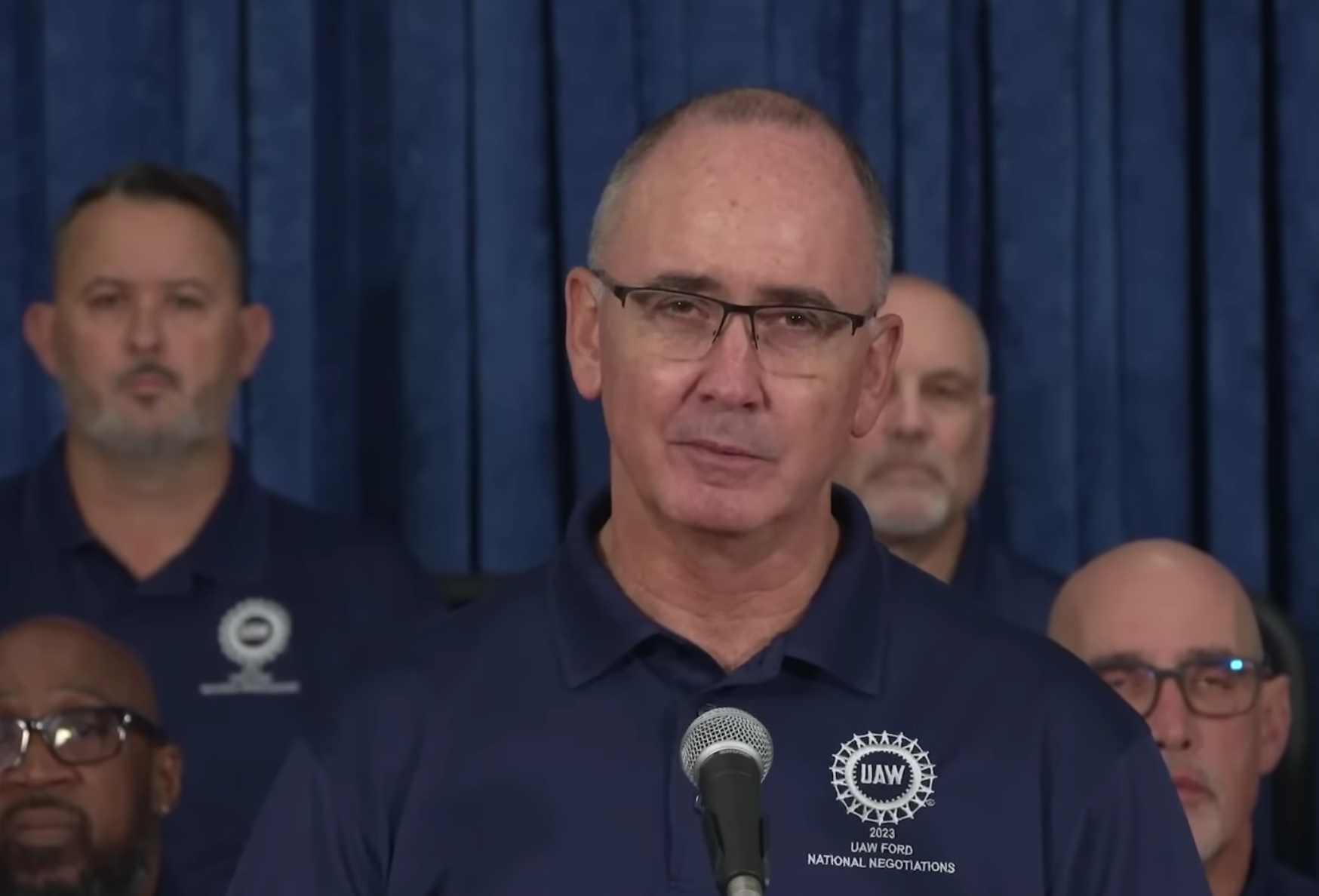Subscribe
Fresh off historic agreements with Ford, Stellantis, and General Motors, Shawn Fain, the president of the UAW union, is calling on others in organized labor to begin setting up a potential massive, multi-industry general strike in 2028.
When Shawn Fain was elected UAW president in March, he vowed “war against our one and only true enemy: multibillion dollar corporations. Now, after negotiating three very favorable contracts with Ford, GM, and Stellantis, the parent company of Chrysler, Fain said UAW set an expiration date of April 30, 2028 for a very specific reason.
“It’s a call to action,” he said in a speech announcing the Ford deal. “We invite unions around the country to align your contact expirations with our own so that together we can begin to flex our collective muscles if we’re going to truly take on the billionaire class and rebuild the economy so that it starts to work for the benefit of the many and not the few.” Fain added that this would allow for UAW and other unions to strike on May Day, which is also International Workers Day. Stellantis is a European conglomerate that owns Fiat Chrysler, Dodge, Ram, and a handful of other brands.
“If we are going to truly take on the billionaire class and rebuild the economy so that it starts to work for the benefit of the many and not the few, then it’s important that we not only strike, but that we strike together,” UAW added in a tweet.
General strikes, in which workers across industries all strike at once, have resulted in worker gains such as the eight-hour day, but have been incredibly difficult to organize in the United States in recent decades. This is because politicians have generally hollowed out union power over the course of decades, and because the United States has very little sectorial bargaining, where unions are allowed to negotiate across multiple companies at once. This means strikes, which remain very effective, are often limited to targeting one company at a time. There are some exceptions to this—the Screen Actors Guild and Writers Guild of America strikes in Hollywood have been industry-wide, for example.
By aligning contracts to expire across different companies all at the same time, unions would be creating a version of sectorial bargaining that could create a version of a general strike. A six-year union contract is longer than most. Fain said UAW did this on purpose, because it allows for more time to organize between now and 2028. Other unions would therefore have more time to negotiate their next contract to align with UAW’s: “We demanded a longer contract because one of our biggest goals coming out of this historic contract victory is to organize like we’ve never organized before,” he said.
UAW’s contracts with Ford, Stellantis, and GM all won major concessions from lawmakers that include 25 percent wage increases over the life of the contract, a reinstatement of a popular cost-of-living adjustment formula, profit sharing, and guarantees that keep jobs in the United States.
Fain called the contract a “turning point in the class war that’s been raging in this country for the past 40 years,” and a move against the status quo where “CEOs and the wealthy pocket every last dime.”
“For far too long, we were being left behind by an economy that only works for the billionaire class in a billionaire’s economy,” he said.
The early verdict on the agreement is that labor leaders love it and business leaders do not, which is probably a good sign. Bob Lutz, who has been a top executive at each of the “Big Three” auto manufacturers, said that “This was a gun to the head from a government-sanctioned monopoly called the labor union,” and that UAW was not nice enough to the large corporations and did not respect their need to remain “competitive.” The Wall Street Journal, meanwhile, said carmakers will “live with the costs” of the deal. Bloomberg, meanwhile, said the agreement is good for both sides.


